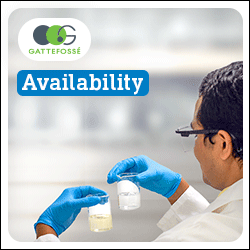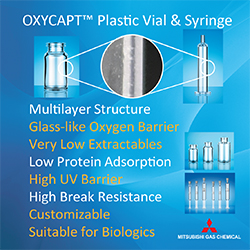Stemline Therapeutics Receives Approval for First & Only Treatment Specifically Indicated for Patients with ESR1 Mutations in ER+, HER2- Advanced or Metastatic Breast Cancer
The Menarini Group recently announced the US FDA has approved ORSERDU for the treatment of postmenopausal women or adult men, with ER+, HER2-, ESR1-mutated advanced or metastatic breast cancer with disease progression following at least one line of endocrine therapy. Stemline Therapeutics, a wholly-owned subsidiary of the Menarini Group, headquartered in New York and focused on bringing transformational oncology treatments for cancer patients, will commercialize ORSERDU in the US.
“The FDA approval of ORSERDU marks the first ever therapy for ER+, HER2- advanced or metastatic breast cancer patients with ESR1 mutations and we are very proud to offer a targeted therapy addressing this huge unmet need,” commented Elcin Barker Ergun, Chief Executive Officer of the Menarini Group. “We are grateful to the patients, investigators and administrators who participated in the clinical trials that led to this remarkable innovation.”
ORSERDU is approved under the FDA’s Priority Review and Fast Track designation based on the results of the registrational Phase 3 trial EMERALD, that demonstrated statistically significant progression-free survival (PFS) with elacestrant vs SOC endocrine monotherapy (fulvestrant, letrozole, anastrozole, exemestane), meeting both primary endpoints in all patients and in those patients whose tumors harbor ESR1 mutations.
In the group of patients whose tumors had ESR1 mutations, elacestrant reduced the risk of progression or death by 45% (PFS HR=0.55, 95% CI: 0.39, 0.77) vs SOC. A post-hoc analysis of the PFS results based on the duration of prior CDK4/6i inhibitors (CDK4/6i) usage was presented at San Antonio Breast Cancer Symposium (SABCS) in December 2022. The median PFS was 8.6 months on elacestrant vs 1.9 months for SOC, in those patients whose tumors harbored ESR1 mutations and had been treated with a CDK4/6i for at least 12 months.
Safety data is consistent with the other endocrine therapies. Most of the adverse events (AEs), including nausea and musculoskeletal pain were grade 1 and 2. No hematological safety signal was observed and none of the patients in either of the two treatment arms had sinus bradycardia.
“Advanced or metastatic ER+, HER2- breast cancer pre-treated with endocrine-based therapy remains an area of unmet medical need. The last endocrine therapy approved was about 20 years ago, and effective endocrine options for this patient population are needed,” said Dr. Aditya Bardia, MD, MPH, Director of Breast Cancer Research at Mass General Cancer Center, Associate Professor at the Medicine Department at Harvard Medical School, and Principal Investigator for the EMERALD trial. “ESR1 mutations are a known driver of resistance to standard endocrine therapy, and so far, have been difficult to treat. The approval of elacestrant is welcomed as it offers a novel option for patients with ER+, HER2- metastatic breast cancer. This therapy targets the ESR1 mutations in metastatic breast cancer and provides patients with a convenient oral once-daily dose.”
“Each year 300,000 Americans are diagnosed with breast cancer and metastatic breast cancer causes the vast majority of deaths from the disease: more than 43,000 annually. We urgently need new and better treatment options to extend and improve the lives of people with metastatic breast cancer,” said Sonya Negley, Executive Director, Metavivor. “We are thrilled to see the approval of ORSERDU, a new oral endocrine therapy, for patients who have tumors that harbor ESR1 mutations, which are present in up to 40% of ER+, HER2- advanced or metastatic breast cancer. We advise patients to get tested for ESR1 mutations at progression in their metastatic treatment, so that their healthcare team can identify the right treatment options for their disease.”
ORSERDU will soon be available in the US. Stemline is committed to helping patients access ORSERDU and will be offering services to overcome access barriers. Stemline ARC, a patient support program is available to help guide eligible patients through the various aspects of getting started on treatment, from providing educational information to helping them understand their insurance coverage and identify potential financial assistance options. For more information, patients and healthcare professionals can call 1-833-4-STEMLINE (1-833-478-3654)
The Menarini Group obtained global licensing rights for elacestrant in July 2020 from Radius Health, Inc., who conducted the EMERALD study. With this approval, Radius will receive milestone payments and royalties from commercial sales. The Menarini Group is now fully responsible for global registration, commercialization, and further development activities for elacestrant.
The EMERALD Phase 3 trial is a randomized, open label, active-controlled study evaluating elacestrant as second- or third-line monotherapy in ER+, HER2- advanced/metastatic breast cancer patients. The study enrolled 478 patients who had received prior treatment with one or two lines of endocrine therapy, including a CDK4/6 inhibitor. Patients in the study were randomized to receive either elacestrant or the investigator’s choice of an approved hormonal agent. The primary endpoints of the study were progression-free survival (PFS) in the overall patient population and in patients with estrogen receptor 1 gene (ESR1) mutations.
The US FDA has approved ORSERDU for the treatment of postmenopausal women or adult men, with ER+, HER2-, ESR1-mutated, advanced or metastatic breast cancer with disease progression following at least one line of endocrine therapy. The Marketing Authorization Application (MAA) is currently under review by the European Medicines Agency (EMA).
Elacestrant is also being investigated in several clinical trials in metastatic breast cancer disease, alone or in combination with other therapies: ELEVATE (NCT05563220); ELECTRA (NCT05386108); ELONA (NCT05618613); ELCIN (NCT05596409). Elacestrant is also planned to be evaluated in early breast cancer disease.
Full prescribing information can be found at www.orserdu.com.
Total Page Views: 768













